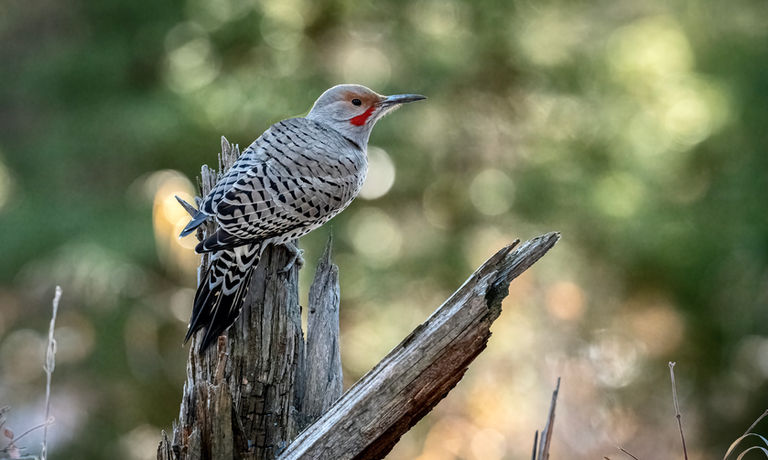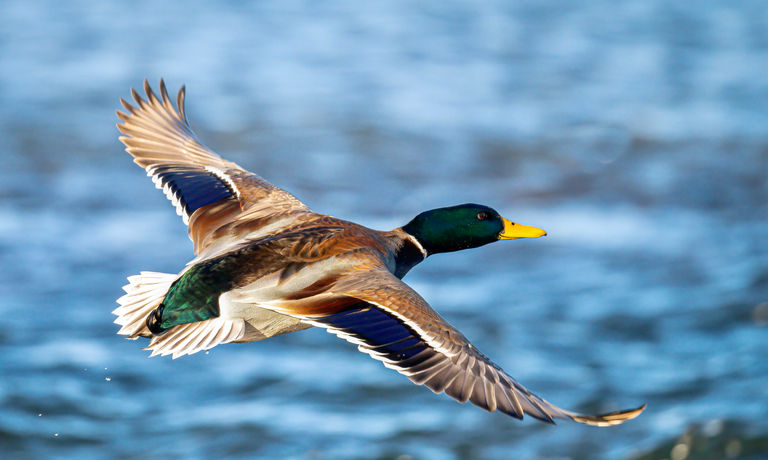Birds At The Museum
The Danish Canadian Museum is home to a large variety of birds. Watch and listen for birds as you wander the grounds.


Baltimore Oriole
Colours: Males are red and black. Females are an olive brown colour
Calls: Their songs sound like sweet flutelike whistles
When: From May to August
Where: In any type of wooded areas
Food: Seeds, small bugs and spiders
Fun Fact: They are small and fast, so be sharp looking for them
Photo by: J Gill
Canada Goose
Colours: Black head and neck, with white under the chin. Brown wings, with a white chest
Calls: A distinct and loud HONK
When: From May to October
Where: Near water, like ponds, streams and even sloughs
Food: vegetation, aquatic plants, grains, and the occasional small fish
Fun Fact: A Canadian Goose is territorial and can get very aggressive. Stay clear of them if you find one. They lay their eggs on the ground, and will protect their nest.
Photos by: Stephanie Sagmoen, Loreli Madiuk and MacKenzie Richard

Rose Breasted Grosbeak
Colours: Males are black, with bright red breasts, and white under bellies. Females are white and brown
Calls: Rich whistle, and warbling, with a chink added in the call
When: From May to September
Where: Woodlands and parks
Food: Insects, fruit and seeds
Fun Fact: They rarely leave their treetops and are a very cautious birds, and thus are hard to find.
Photo by: Lilian Hiebert
Tennessee Warbler
Colours: Males grey head, and a green body. Females tend to have a yellowish tinge in the green
Calls: High pitched chip in three parts
When: From May to September
Where: Treetops of thin patches of trees
Food: Insects mostly, but also drink nectar from flowers.
Fun Fact: These birds are so small they can gather nectar from flowers, but not like other nectar sucking animals, they drain the flower from the base of the stalk.
Photos by: Michelle Stewart and Frank Crocket

Ruby Throated Hummingbird
Colours: Males green bodies, with red under necks. Females are greenish brown, with a white under belly
Calls: Mostly humming noises. With occasional soft tic-tic sounds
When: to find them: From May to August
Where: to find them: Parks, gardens and small woodlands
Food: Nectar from flowers, flowered trees, and small insects
Fun Fact: When migrating, these hummingbirds can fly over thousand-miles at a time. They are rare and hard to find, so look closely
Photo by: Lilian Hiebert
Western Tanager
Colours: Males have a red head, yellow body and black wings. Females have a greenish tinged backside, yellow belly and black and white wings
Calls: Their loudest call is a pir-pir-pir noise
When: From May to August
Where: Wooded areas and gardens
Food: Insects that live in the trees, and occasional fruit
Fun Fact: The Western Tanager travel the furthest north during mating seasons, they go up as far as Alaska.
Photo By: Leslie Pearson


Black Billed Magpie
Colours: Black body, wings, head and beak, with a white breast.
Calls: Loud squawking noises that can be high pitched or low, they have a wide vocal range
When: to find them: All year around
Where: Cities, countryside, everywhere there is food
Food: Berries, Carrion, and other smaller birds
Fun Fact: If you look closely at the tail feathers, you can see tinges of colours in them. They’ve also been known to mimic other noises, to trick other animals, and people
Photo by: Stephanie Sagmoen

European Starling
Colours: All black, with small yellow beaks
Calls: Loud whistles, to soft warbling noises
When: Suburbs and agricultural zones
Where: Gardens, parks, anywhere they can nest in abundance
Food: Forage food, grain, seeds, berries and garbage
Fun Fact: They are one of the types of Starlings released in New York park, in 1890’s and overpopulated all across Canada and the United States, changing the bird ecosystem.
Photo by: Lynn Knonynenbelt


White Throated Sparrow
Colours: White and black stripped head, grey breast, brown with black spots wings and back
Calls: Usually long and low pitched beautiful notes
When: From May to August
Where: In dense woodlands and forests
Food: Insects, seeds and fruit
Fun Fact: They are the most common birds in the area, and are recognized for their sweet songs.
Photo by: Loreli Madiuk
Red Tailed Hawk
Colours: Brown and white, with a red tail
Calls: Vocal hoarse scree
When: All year
Where: Open fields with patches of trees
Food: Small to medium sized mammals, snakes, birds and carrion
Fun Fact: Can perform spectacular arial manoeuvres, cutting through the sky.
Photos by: J Gill and Lilian Hiebert
Northern Flicker
Colours: Blue and red coloured heads, with brown and black speckles on his wings and back
Calls: Tik-tik or a wik-wik calls
When: From May to October
Where: Open woods and forest edges
Food: Beetles, larvae, berries and seeds
Fun Fact: Flickers are a type of woodpecker, so you can find them pecking at the trees, or more likely hear them
Photos by: Leslie Pearson
Yellow Bellied Sap Sucker
Colours: Red blotch on top of the head, black and white body and wings. Males have red throats, Females white throats
Calls: They do not speak much, but occasionally make dry chattering noises
When: From May to August
Where: Woodlands
Food: Sap from trees, also insects and occasional berries
Fun Fact: these woodpeckers are sometimes dangerous to trees, and can damage or kill a tree by eating too much sap out of it
Photo by Del Spenst


Gray Catbird
Colours: All grey, with black tipped heads and tails
Calls: Rapid and long blasting whistling and chattering noises like a mew, as well as mimicking other sounds
When: From May to August
Where: Agricultural areas, roadsides and woods edges
Food: Insects and small fruits
Fun Fact: They belong to the Mockingbird family. Able
Photo by: Leslie Pearson
Mallard
Colours: Males have green heads, bright yellow bills, brown bodies, and light brown wings. Females are all brown, with lighter and darker brown all over
Calls: Quack
When: From April to August
Where: In and around ponds, lakes, and any deep body of water
Food: Aquatic vegetation, worms, snails and water bugs
Fun Fact: Mallards can fly nearly vertical, when required.
Photos by: Leslie Pearson and Loreli Madiuk

Purple Finch
Colours: Males have dark red-purple heads and white bellies, with darker wings. Females are brown with white stripes
Calls: Warbles
When: From May to August
Where: Bushes, small trees
Food: Berries, seeds, sunflower seeds, ground insects
Fun Fact: The females of the species tend to win any fight they get into with the males
Photo by: Angela Hindmarsh
Eastern Kingbird
Colours: Grey-black back with a white chest
Calls: Tzee-Tzee noise
When: From May to August
Where: In fields, on edges of woodlands
Food: Insects
Fun Fact: The Kingbird likes to catch insects flying through the air
Photos by: Leslie Pearson

White Crowned Sparrow
Colours: Males have black and white heads. Females brown and white head. Both have white under bellies, and brown wings
Calls: Buzz-buzz-dur type of noise
When: From May to August
Where: Tense shrubs and trees, and along road sides where they forage
Food: Seeds, buds, grass and small fruit
Fun Fact: The male Sparrow is the one that sings, while the females are rarely heard
Photo by: Lynn Knonynenbelt
Common Raven
Colours: All black
Calls: CAW
When: All year round
Where: Anywhere there is food
Food: Carrion, smaller birds, eggs, scavengers of everything eatable
Fun Fact: Ravens are very intelligent and can mimic many different sounds, including foxes, wolves, and car engines.
Photos by: J Gill and Brent Nichols
White Breasted Nuthatch
Colours: White breast, black head, grey back and wings
Calls: Hah-hah-hah or whut-whut short calls
When: All year around
Where: deciduous forests and wooded urban areas
Food: Nuts, acorns, fruits and seeds (they store their food like squirrels
Fun Fact: The Nuthatch’s claws are so strong, they can walk down the side of a tree trunks head first
Photo by: Loreli Madiuk and Burkhard Eibich
American Robin
Colours: Dark red chest, white and black throat, dark brown back, wings, black tail
Calls: A singing chirp that sounds a lot like cheer-up
When: April to October
Where: Parks, wooded areas, near a water source,
Food: Foliage, worms, ground bugs, seeds and fruits
Fun Fact: This common Robin is the symbol of spring; one of the first birds species to migrate back to North America in the spring
Photos by: Leslie Pearson, J Gill and Loreli Madiuk
Chipping Sparrow
Colours: Grey belly, white under neck, brown head with strip of white over eye, brown back and wings, darker brown tail
Calls: A close quick chip-chip call they are named after, as well as tssp songs
When: From May to August
Where: Grasslands, on the edge of woodlands
Food: Grass seeds, other small plant seeds, and small fruit
Fun Fact: These sparrows are the only ones of their species that prefer open fields to wooded areas.
Photos by: J Gill
House Wren
Colours: Lighter brown belly, with an all brown body
Calls: chatters sounding like churr, or rattles
When: From May to August
Where: Scrub areas, parks, gardens and small wooded areas
Food: Insects and spiders
Fun Fact: These wrens have close associations to humans, and are less afraid to come close to you
Photo by: Lynn Knonynenbelt and Lillian Hiebert
Red Winged Blackbird
Colours: Males are all black, with red and yellow stripes on the shoulder of the wing. Females are white and light brown, with darker brown speckles
Calls: Konkaree songs with a trill at the end
When: From May to August (a few will stay all year around)
Where: Fields near wooded areas. They are territorial, so spread out far from each other
Food: Vegetation, seeds and grain
Fun Fact: Male blackbirds get around. They can have up to ten females nesting in their territory. The birds can cause a lot of agricultural damage with their large flocks that migrate
Photos by: Leslie Pearson, J Gill and Loreli Madiuk
Black-Capped Chickadee
Colours: Black head and throat, white face, and chest with a bit of yellow on the under belly, Grey back, wings, and tail with black tips
Calls: Chick-a-dee-dee-dee soft song
When: From May to August
Where: Woodlands and small brush areas
Food: Insects, spiders, small seeds, small fruits
Fun Fact: If you have a bird feeder, a chickadee will be there
Photos by: Leslie Fabre and Leslie Pearson

.png)









































